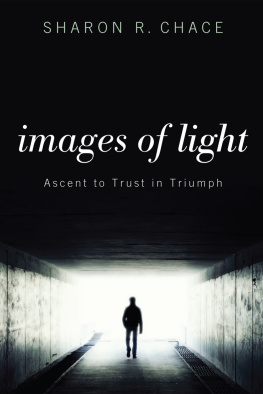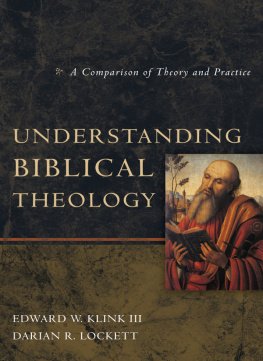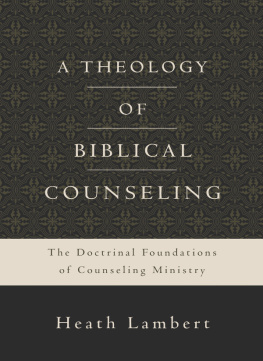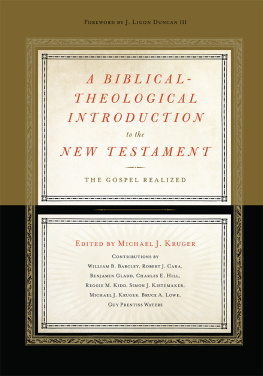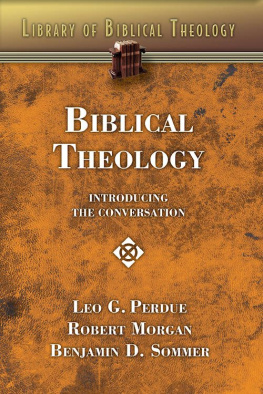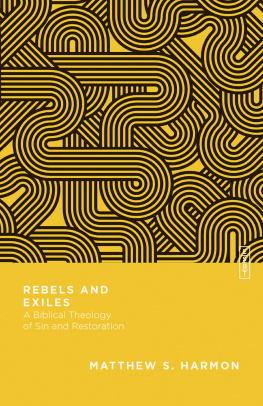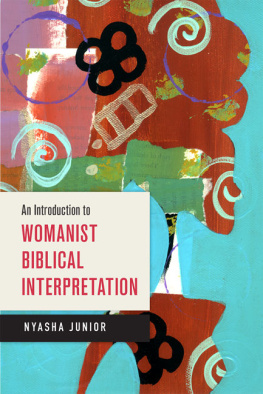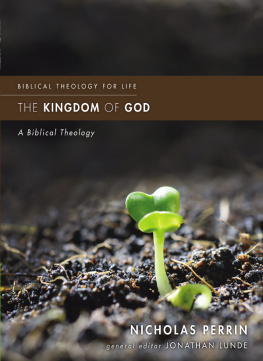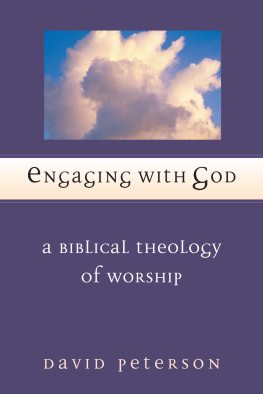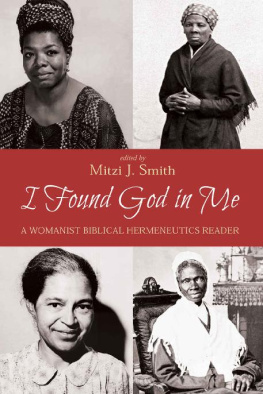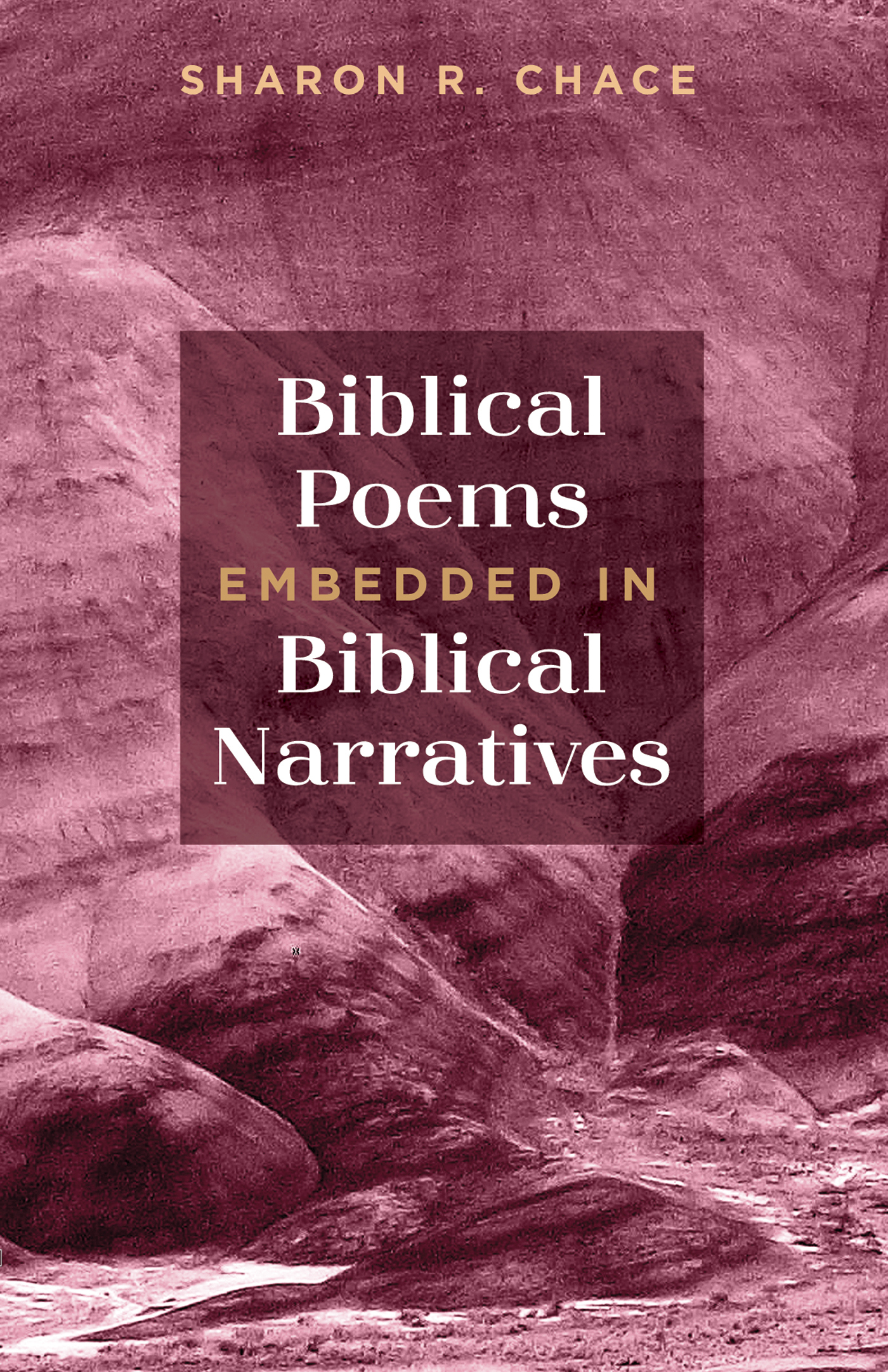Introduction
T he purpose of this course is to study biblical poems by focusing on those embedded in biblical narratives. Contemplating biblical poetry engages the imagination. Therefore literary reflection gives the reader a fuller appreciation than does the study of historical criticism alone, necessary as it is. The biblical scholar G. B. Caird wrote: The creative act of imagination in which a poet gives birth to a metaphor, and the appreciative act of the reader who lays himself open to the resultant poem, allowing it to make its own impact on his mind, are both distinct from the act of the scholar who subjects the poem to critical study. Therefore imagination that is not part of strictly academic study can inform understandings of religious phenomena and poetry.
To my mind the prophets had a heightened sense of inspiration in which they imaginatively discerned the commands of God. Consider the poetic theory of Gerard Manley Hopkins in his letter about poetry to his friend, Alexander Baillie.
I think then the language of verse may be divided into three kinds. The first and highest is poetry proper, the language of inspiration. The word inspiration need cause no difficulty. I mean by it a mood of great, abnormal in fact, mental acuteness, either energetic or receptive, according as the thoughts which arise in it seem generated by a stress and action of the brain, or to strike into it unasked. This mood arises from various causes, physical generally, as good health or state of the air or, prosaic as it is, length of time after a meal. But I need not go into this; all that it is needful to mark is, that the poetry of inspiration can only be written in this mood of mind, even if it only last a minute, by poets themselves.
As an artist as well as poet, I partly understand. I did my best charcoal drawing as part of the final exam in a college studio art course. I was in a heightened sense of nervousness yet with more hand-eye coordination than usual. My strong, confident drawing strokes came from somewhere beyond my typical self. Energy and skill transcended my usual strength and ability. Was this inspiration from God or from the inner workings of my mind? Or does God work through human minds? I do not know. Whatever the source it was transcendent beyond everyday expertise.
Hopkins also weighed in on the place of imagination. In his essay Poetic Diction that he wrote for the Master of Balliol possibly in 1965 , Hopkins notes the importance of diction as a defining characteristic of poetry. He refers to a variety of parallelism including that of the Hebrew Bible so he must have known of Lowths work, which is discussed in more detail later in this introduction. He notes parallelism of both like and unlike lines. His conclusion is that imagination is part of both or, as he put it, looms over both.
Does Hopkins understanding neatly equate inspiration and imagination with truth? I do not think so. However his regard for inspired verse and imagination is significant. Furthermore Hopkins readers have found insight and truths in his poetry.
If you question the validity of the imagination in discerning truth you are thoughtful and not alone. A basic question, as Alan Cooper put it in his chapter Imagining Prophecy in the book Poetry and Prophecy: The Beginnings of a Literary Tradition , edited by James L. Kugel, is whether the imagination can be a source of truth. He says that the pendulum swings back and forth. In a nutshell of his thought do imaginative writers play loose with facts or do they transcend facts for a nobler purpose?
The marker of validity of poetic and prophetic inspiration and imagination may be found in the words of Jesus in Matthew :. A tree known by its fruits is like people known by their deeds and moral compass. Certainly the prophet Micah encourages the growth of healthy fruit of justice and kindness.
He has told you, O mortal, what is good;
and what does the Lord require of you
but to do justice, and to love kindness,
and to walk humbly with your God? (Mic : 8)
I relate to imagining Gods words. In approximately 1974 when my husband was pastor of the First Congregational Church of Walpole, New Hampshire, I wrote an imaginative dialogue essentially like the following.
God: Do you love your husband and child?
Sharon: Yes. You know that I do.
God: Do you write your poems?
Sharon: There isnt time. This parsonage is huge. There is so much cooking and cleaning. The phone rings and there are things to do with the Womens Fellowship.
God: You do not play your drum for me.
Sharon: I will.
If I literally heard those words it would have been time to call a mental health professional. Is there empirical evidence that I did imaginatively tap into what God called me to do? No, but there is a marker to measure validity. Is time for poetry writing what a wise person or loving parent would want for me? I believe that my dialogue led me to greater insight and, in time, the fruit of poetry.
I deeply appreciate the thoughts of John W. OMalley, SJ, that he shared with me through correspondence. In summary, he loves the title of this course book because it gets at an aspect of the bible that at least hints at the ineffable that is God. When you read biblical poetry, look for hints of the ineffable. Sharing a hint is a modest claim. You do not need to know for sure that you have unearthed a biblical authors experience of the ineffable. Too much certainty is the archenemy of wisdom.
While valuing imagination and experiences, I will not separate artistic, literary and religious experience from critical studies. The historical method is characterized by a high regard for human authors, their sources and life situations. Provenance of origin and authorship matters on the Antiques Road Show and in biblical studies. Context which is related to provenance also matters. Amy-Jill Levine says that there is an old saying in biblical studies that a text without context is just a pretext for making it say anything one wants. She credits Ben Witherington III for being the first to bring the saying to her attention. She goes on to say that knowing the original context leads to richer understanding. The original context can inform the imagination and keeps interpretations from being too farfetched. Also critical studies help people avoid being trapped in intellectual prisons of biblical literalism. My blend of critical biblical studies, literary analysis, and personal applications is reflected in the division of each session into reflection and response .
You are probably wondering what I mean by poems embedded in narrative. The Psalms are poems that stand alone. Poems embedded in narrative are parts of biblical texts. For example, the well-known love chapter in Corinthians is to my mind a poem inserted into Pauls letter to a divided church I call First Church Corinth. This chapter enumerates the attitudes that people in this early church or assembly needed in order to get along. Before we examine this poem and other embedded poems more fully, I will discuss the possibility of a continuum of poetry and prose in the Bible.
Is there a continuum of poetry and prose? In poetry writing groups I have attended there are ongoing discussions about what is and conversely what is not poetry. Thus it seems reasonable to me to expect a continuum in the Bible. However it is not clear that there is a continuum between poetry and prose in biblical literature. Scholars disagree. Therefore to some extent it depends upon who you ask.
David L. Peterson says that Kugel argues that the distinction between poetry and prose is best understood as involving different points on a continuum. Thus there is no clear distinction. Not sure about that! The discussion goes on.


